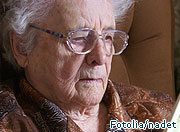The UK’s largest professional body of GPs has announced overwhelming opposition to changing the law on assisted suicide.
The Royal College of General Practitioners’ (RCGP) decision follows a consultation in which 77 per cent of respondents said the organisation should remain opposed to changes in the law.
The consultation – one of its “most comprehensive” – was launched last year after former Chairman, Clare Gerada, proposed it take a neutral stance towards assisted suicide and euthanasia.
Slippery slope
Following a series of debates and online polls, 1,700 GPs responded to the consultation and said that legalisation would be “detrimental to the doctor-patient relationship”.
Changes in the law could result in patients being coerced into the decision to die and put society’s most vulnerable groups at risk, they added.
It would also “instigate a slippery slope” where assisted suicide could later extend to severely disabled individuals who were unable to consent.
Watertight
In 2012, Gerada made a case for neutrality in an opinion piece for the British Journal of General Practice.
The following year, Lord Falconer announced plans to table his Assisted Dying Bill, which would allow terminally ill people to undergo an assisted suicide.
Falconer has, however, admitted that the system would not be watertight. The Bill’s second reading is yet to be scheduled.
Comprehensive
Speaking of the GPs’ response, Chairman of the RCGP, Dr Maureen Baker, said: “This was one of the most comprehensive consultations the college has ever undertaken and the quality of the responses on this extremely important issue has been very high.
“GPs will continue, as they have always done, to provide excellent care to patients in the final days and hours of their lives.”
She added: “Any change in the law to permit assisted dying would have a huge impact on our profession”.
Scotland
The British Medical Association (BMA) has also voiced opposition to legalising assisted suicide.
The organisation spoke out against MSP Margo MacDonald’s Assisted Suicide (Scotland) Bill, which was launched in November.
Chairman of the Scottish BMA consultants committee, Dr Lewis Morrison said: “Under these new proposals, doctors will still play a role in assessing, verifying and prescribing the fatal dose, if not administering it and therefore will be taking on a role that effectively allows them to help kill a patient.”
Shockwaves
Chief Executive of the Christian Medical Fellowship, Dr Peter Saunders, said Belgium’s recent decision to legalise euthanasia for children has sent “shockwaves” throughout the world.
He said it “underlined how difficult it is to stop incremental extension once any weakening of the law is allowed”.
He added: “The RCGP decision reflects the fact that the vast majority of UK doctors are opposed to legalising euthanasia”.

